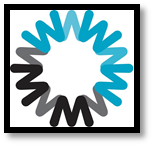Why?
Monitoring and evaluation is ESSENTIAL to any organisation and can be incredibly beneficial. It shouldn’t just be about what is necessary to please the funders, but also about how it benefits the organisation and all its stakeholders.
There are a number of terms involved in monitoring and evaluation. Confusingly, different funders and organisations use different terms and different definitions (i.e. aims are sometimes goals).
Some organisations want to understand why are outcomes and their measurement important? Why measure them alongside outputs? And what do they tell you that’s unique?
What?
In your work, you’re most likely to be focussing on outcomes in individuals and there are a number of different aspects of an individual where changes can take place
We will assist to take routine, systematic information for the purpose of checking your project’s progress against your project’s plans and turn them into practical measures you can assess and evaluate.
For example, with facilitated workshops and focus groups we can devise useful information and processes to:
- Tell you the actual effect of the work you are doing
- Enable you to track gradual change
- Validate prevention work effectiveness
- Help you to report to funders and attract further information (to show that you are a learning organisation)
- Save you time (if you plan your work around what has been proved to work and if you make sure you only collect what you need to, not just what has always been collected by the organisation)
As you will know, just because the final, ideal outcome has not been reached, it does not mean that some positive change has occurred in the client’s life. There are signs along the way that the service is having a positive effect, small steps that are and even in cases of relapse and ‘bad weeks’, for example, when the service is not engaged with, you can still capture the progress, small or otherwise.
With your input we help identify intermediate outcomes by looking at the main outcome to come up with the stages which form the journey towards achieving the results.
We help you think about what steps you think key to a clients’ progress – what achievements you see as accomplishments when working with a client and put these into the order in which they usually take place.
Outcomes:
- In-house trainings to help improve understanding and develop distinct aims, objectives outcomes and indicators.
- Improve understanding of outcomes and clarify purpose of your organisation and its activities for a range of stakeholders to evidence the difference your work makes to the lives of women you work.
- Shape easy-to-read soft outcomes that often require a number of different indicators to paint the full picture.
- Build on knowledge to help organisations identify good-quality indicators from projects and think through consistent methods for gathering data.
- Maximise data categories and options using a number of collection methods, such as, stories, case notes, observations, sampling and snapshots.
- Generate an outcomes monitoring framework to capture qualitative and quantitative data
Top Tip: If you’re already collecting this data, then that’s great and you can continue to use this, for a number of projects. Also, think carefully about all the data you collect, which you might not necessarily see as traditional monitoring and evaluation data. For example, case notes contain an awful lot of information, and maybe you can think about how this can be used? Perhaps there are judgements from counsellors which equate to evidence of improvement, or comments from service users.
NB: If using this kind of data, you need to be careful about confidentiality – you may need to get permission to use this data beforehand or make sure that it’s anonymised.
For more information please contact us on or email .
